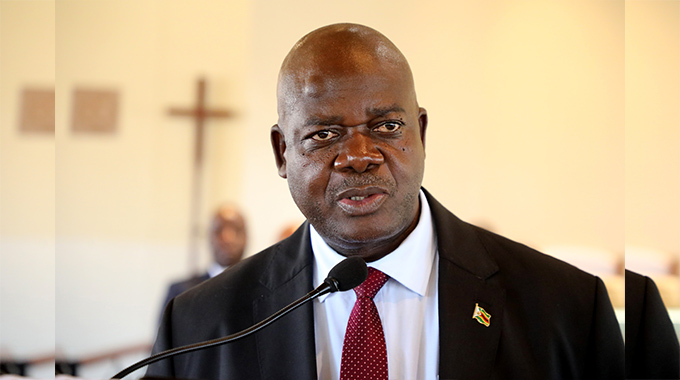Murder ruling spawns drama at court

protested over the 15-year prison term imposed on her killer Nqobile Sibanda, a former Seventh-Day Adventist Church youth leader.
Sibanda (32) stabbed to death his pregnant girlfriend Murawu in a bid to save his relationship with another woman in the church before he dumped the body in Rusape.
Justice Francis Bere – after considering that Sibanda had spent a decade in remand prison and having found extenuating circumstances in the matter – imposed a 15-year term of imprisonment on the man who confessed to the murder nine years after he was convicted of murder with actual intent.
Sibanda was sentenced after the court took into consideration evidence by two Government psychiatrists who confirmed that he suffered from a mental problem called temporal lobe epilepsy.
Youthfulness was also considered as an extenuating factor since Sibanda committed the offence at the age of 23.
However, the court’s ruling sparked outrage when the late Miss Murawu’s aunt, who was among relatives following the proceedings, sprang up from the public gallery and broke into loud screams before the judge and his two assessors left the courtroom.
Other women believed to be relatives joined in, prompting police officers, prison guards and other court officials to flock to Court B to quell the commotion.
The aunt, who was last year quoted in the media calling for a death penalty on Sibanda, could be heard saying “Shuwa 15 years chaidzo iye Jean wacho akafa. Jean uripiko? This is not fair”.
Police officers had a torrid time trying to take her to the police post as she clung onto the courtroom door.
More prison guards and other court officials had to be called for reinforcement.
Another male relative, who was shouting in protest outside Court B, was also taken down to the police post where they were counselled and later released.
Business at the courts ground to a halt as officials rushed to the police post on the ground floor to witness the melee.
The aunt could also be heard shouting at Advocate Thabani Mpofu who was repre-senting Sibanda: “Mafaraka, wangu mwana ari pasi imi mapiwa 15 years.”
A fellow lawyer, who was only identified as Mr Nyeperai came to Adv Mpofu’s rescue by explaining to the elderly woman that he was simply doing his job.
The visibly grave Nqobile’s parents remained in the courtroom until order was restored.
Giving reasons for the sentence, Justice Bere indicated that Sibanda had committed a serious offence, but he had also suffered a 10-year pre-incarceration while awaiting sentence.
The court also commended Sibanda for apologising to the court, the late Miss Mura-wu’s relatives, especially the aunt, and his parents over his heinous act.
Sibanda confessed and gave a chilling account of how he killed the woman.
He told the court that he was now a stronger believer before embracing with the aunt in court two months ago.
Even chief law officer Roderick Tokwe, who was appearing for the State, agreed with Adv Mpofu and the court that life imprisonment was not appropriate under the circumstances.
Mr Tokwe called for a prison term in the region of 15 years while Adv Mpofu called for a five-year prison term arguing Sibanda had already served 10 years.
However, Mr Tokwe said Sibanda to some extent contributed to the delay in the finalisation of the matter by making several applications for freedom well knowing that he had committed the offence.
Justice Fergus Blackie, who retired from the bench in July 2002, convicted Sibanda of murder with actual intent but he and his assessors had yet to determine whether there were extenuating circumstances, which would have allowed a lesser penalty than the death sentence.
The then Judge President Paddington Garwe declared the proceedings before Justice Blackie a nullity and ordered a fresh trial before another judge.
The prosecution disagreed with the decision and appealed to the Supreme Court.
Chief Justice Godfrey Chidyausiku allowed the appeal by the prosecution.
Prior to his departure from the bench, Justice Blackie halted proceedings in the case after the defence sought an order to have Sibanda undergo a mental examination before the aspect of extenuation was considered.
Although efforts were made to have the judge return and complete his partly heard matters, nothing materialised.
During trial the court heard that on April 8 2001, Murawu disappeared from her residence in Hillside after having been visited by a man driving a Mazda 323.
She was, however, found dead on April 14 along the Nyanga-Rusape Road and the corpse had multiple stab wounds.
The court also heard that when Sibanda was arrested, a white Mazda 323, which he was driving, was taken for forensic tests and blood stains were found on the front passenger seat, the floor, the back and the boot.
Through forensic tests, it was also established that the late Murawu and Sibanda were the source of the bloodstains found in the car.







Comments